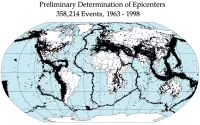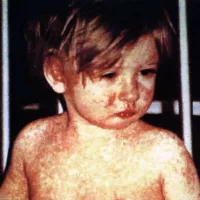New Caledonia is a French sui generis collectivity, an island group located in the southwest Pacific Ocean. It is situated southwest of Vanuatu and east of Australia, a considerable distance from Metropolitan France. Its unique legal status within overseas France is recognized in the French Constitution.
1917: Second Uprising
In 1917, a second uprising occurred in New Caledonia, led by Noël of Tiamou. Protestant missionaries, including Maurice Leenhardt, witnessed the events of this war. Leenhardt documented the Kanak people in ethnographic works.
1921: Decline of Kanak Population
In 1921, the Kanak population had declined to 27,100, a significant drop from around 60,000 in 1878, primarily due to new diseases introduced by Europeans. Their numbers did not increase again until the 1930s.
1936: Birth of Jean-Marie Tjibaou
In 1936, Jean-Marie Tjibaou, a significant figure in New Caledonian history, was born. His father was Wenceslas Thi, who was orphaned during the 1917 rebellion and raised by a Protestant missionary.
June 1940: New Caledonia Rejects Vichy Government
In June 1940, following the fall of France, the General Council of New Caledonia voted to reject the Vichy government and continue supporting the Allied military effort. This decision led to internal conflict, street demonstrations, and an assassination attempt.
March 1942: New Caledonia Becomes Important Allied Base
In March 1942, with assistance from Australia, New Caledonia became a vital Allied base. The U.S. Navy's South Pacific Fleet base was relocated to Nouméa.
May 1942: Battle of the Coral Sea
In May 1942, the fleet that turned back the Japanese Navy in the Battle of the Coral Sea was based at Nouméa.
1942: Battle of Bir Hakeim
In 1942, the Bataillon du Pacifique, as part of the 1st Free French Brigade, participated in the breakout after the Battle of Bir Hakeim in the Western Desert.
1943: US Naval Base
In 1942-1943, the main South Pacific Fleet base of the United States Navy in the South Pacific moved to Nouméa. American troops stationed on New Caledonia numbered as many as 50,000.
1944: Landing in Provence
In 1944, the Bataillon de l'infanterie de marine et du Pacifique, which included men from New Caledonia, landed in Provence as part of the French Expeditionary Corps during the Italian Campaign. They were later replaced by local French volunteers and résistants.
1946: New Caledonia Becomes Overseas Territory
In 1946, New Caledonia officially became an overseas territory of France.
1950: New Caledonia football team begins
In 1950, the New Caledonia football team began playing.
1953: Limited access to public education before 1953
Before 1953, universal access to public education was not available in New Caledonia, leading to significant variation in French language fluency across the population.
1953: French Citizenship Granted
In 1953, French citizenship was granted to all New Caledonians, irrespective of their ethnicity.
1969: Nickel Boom
The years leading up to the Nickel boom in 1969 saw an increase in European and Polynesian populations.
1972: End of Nickel Boom
The years leading up to 1972 end of the Nickel boom saw an increase in European and Polynesian populations and the indigenous Kanak Melanesians became a minority, though they were still the largest ethnic group.
1976: Start of "The Events"
The period between 1976 and 1988, known as "the Events", was marked by conflicts between the French government and the Kanak independence movement, leading to violence and disorder.
1983: Membership in the Pacific Community
In 1983, New Caledonia became a member of the Pacific Community, with Nouméa serving as the organization's regional headquarters.
1983: Statute of Enlarged Autonomy Proposed
In 1983, a statute of "enlarged autonomy" was proposed for New Caledonia, outlining a five-year transition period and a referendum in 1989.
March 1984: Front Indépendantiste Seizes Farms
In March 1984, the Front Indépendantiste, a Kanak resistance group, seized farms. Subsequently, the Kanak and Socialist National Liberation Front (FLNKS) formed a provisional government.
January 1985: French Government Offers Sovereignty to Kanaks
In January 1985, the French Left-wing government offered sovereignty to the Kanaks and legal protection for European settlers. This plan faltered due to escalating violence.
March 1986: Centre-Right Government Redistributes Lands
In March 1986, the centre-right government in France began eroding the arrangements established under the Socialists, redistributing lands mostly without consideration of native land claims.
1986: Inclusion on UN List of Non-Self-Governing Territories
Since 1986, the United Nations Committee on Decolonization has included New Caledonia on the United Nations list of non-self-governing territories.
1987: Escalation of Violence
By the end of 1987, escalating violence, including roadblocks, gun battles, and property destruction, culminated in the Ouvéa cave hostage taking.
June 1988: Matignon Agreements Signed
On June 26, 1988, the Matignon Agreements were signed, ensuring a decade of stability in New Caledonia.
1988: Ouvéa Cave Hostage Taking
In 1988, pro-independence militants on Ouvéa killed four gendarmes and took 27 hostages. The military assaulted the cave to rescue the hostages, resulting in fatalities on both sides.
1989: Referendum Proposed
A referendum was proposed for 1989, as part of the statue of "enlarged autonomy" for the territory.
1989: Death of Jean-Marie Tjibaou
Jean-Marie Tjibaou, a significant figure in New Caledonia's history, died in 1989. He was the son of Wenceslas Thi, who was orphaned in 1917.
1993: Foundation of the University of New Caledonia
In 1993, the University of New Caledonia (Université de la Nouvelle-Calédonie) was founded in Nouméa, operating under the supervision of the Ministry of Higher Education, Research and Innovation.
1996: Census Formulation
In 1996, the census had a formulation different from the 2009 census, which allowed multiple choices (mixed race) and the possibility to clarify the choice "other".
May 1998: Nouméa Accord Signed
On May 5, 1998, the Nouméa Accord was signed, setting the groundwork for a 20-year transition gradually transferring competences to the local government.
1998: Signing of the Nouméa Accord
In 1998, the Nouméa Accord was signed following a period of secessionist unrest in the 1980s and was approved in a referendum, granting New Caledonia special status.
1998: Opening of the Jean-Marie Tjibaou Cultural Centre
The Jean-Marie Tjibaou Cultural Centre, designed by Renzo Piano, opened in 1998 and is an icon of Kanak culture in New Caledonia.
1998: Nouméa Accord and primary education
Under the terms of the 1998 Nouméa Accord, primary education in New Caledonia became the responsibility of the three provinces.
February 1999: Passage of Organic and Ordinary Laws
The institutional organization is the result of the organic law and ordinary law passed by the Parliament on 16 February 1999.
2000: Navy Falcon 200 Gardian in New Caledonia
As of the latter 2010s, French naval aviation in New Caledonia included two Navy Falcon 200 Gardian maritime surveillance aircraft.
2001: Goldman Environmental Prize Awarded
In 2001, Bruno Van Peteghem was awarded the Goldman Environmental Prize for his efforts on behalf of the Caledonian ecological protection movement in the face of "serious challenges" from Jacques Lafleur's RPCR party.
2003: Rediscovery of Phoboscincus bocourti
In 2003, Phoboscincus bocourti, a large skink thought to be extinct, was rediscovered in New Caledonia.
2004: New Caledonia admitted into FIFA
In 2004, the New Caledonia football team was admitted into FIFA, the international association of football leagues.
2004: Rugby league team participation
In 2004, the New Caledonia rugby league team participated in the Pacific Cup.
2004: Omission of Community Belonging Question
In 2004, the question on community belonging was left out of the census.
2004: Internationaux de Nouvelle-Calédonie as part of ATP Challenger Tour
Since 2004, the Internationaux de Nouvelle-Calédonie tennis tournament is part of the ATP Challenger Tour, serving as preparation for the Australian Open.
2005: Brendan Washington's Lanterne Rouge
Australian Brendan Washington finished last in the "Tour Cycliste de Nouvelle-Calédonie" between 2005 and 2009.
2005: Inauguration of the Mwâ Ka Totem Pole
In 2005, the Mwâ Ka, a 12-meter totem pole, was inaugurated in New Caledonia to commemorate the French annexation.
June 2006: Revocation of INCO's Mining Licence
In June 2006, INCO's mining licence was judicially revoked owing to claimed abuses, as progress has been made in a few areas in addressing the protection of New Caledonia's ecological diversity from fire, industrial and residential development, unrestricted agricultural activity and mining.
2006: Reporters Without Borders Concern
In 2006, Reporters Without Borders raised concerns about "threats and intimidation" of RFO staff by members of a pro-independence group in New Caledonia.
2007: South Pacific Games win
In 2007, New Caledonia won the South Pacific Games for the fifth time.
2008: UNESCO World Heritage Listing of Lagoons
In 2008, six lagoons of the New Caledonian barrier reef, the world's longest continuous barrier reef system, were inscribed on the UNESCO World Heritage List.
2008: Oceania Handball Nations Cup win
In 2008, the New Caledonia Handball team won the Oceania Handball Nations Cup held in Wellington, New Zealand, defeating Australia in the final.
2008: UNESCO World Heritage Site Designation
In 2008, the New Caledonian lagoon and the surrounding New Caledonia Barrier Reef was named a UNESCO World Heritage Site for its exceptional beauty and marine biodiversity.
2008: Nickel Sector Performance
In 2008, the share of the nickel sector accounted for 8% of New Caledonia's GDP.
2008: Nickel Industry Affected by Recession
The late-2000s recession greatly affected the nickel industry in New Caledonia. Compared to 2008, the global supply of nickel was reduced by 6% due to producers reducing or stopping their activity.
2009: Knowledge of Kanak languages
At the 2009 census, 41.3% of people aged 15 or older reported having some knowledge of at least one Kanak language, while 58.7% reported having no knowledge of any Kanak languages.
2009: Brendan Washington's Lanterne Rouge
Australian Brendan Washington finished last in the "Tour Cycliste de Nouvelle-Calédonie" between 2005 and 2009.
2009: Decline in Nickel Prices
In 2009, the nickel industry in New Caledonia was significantly affected by the recession, with nickel prices dropping by 31.0% year-on-year, leading to production cuts.
2009: Nickel Sector and Production
In 2009, the nickel sector in New Caledonia saw its share of GDP fall from 8% in 2008 to 5%, though there was a recorded recovery in demand in the second half of the year leading to a 2.0% increase in local metal production.
2009: Reintroduction of Community Belonging Question
In 2009, the question on community belonging, which had been left out of the 2004 census, was reintroduced under a new formulation, different from the 1996 census, allowing multiple choices (mixed race) and the possibility to clarify the choice "other".
2009: French Language Proficiency
In the 2009 census, 97.3% of New Caledonians aged 15 or older reported being able to speak, read and write French, while only 1.1% had no knowledge of French.
July 2010: Congress Votes in Favor of Dual Flags
In July 2010, the Congress of New Caledonia voted in favour of a wish to fly the Kanak flag of the independence movement FLNKS alongside the French tricolour, as dual flags of the territory. This wish was legally non-binding and proved controversial.
2010: Secondary education transfer
As of 2010, secondary education in New Caledonia was in the process of being transferred to the provinces, as outlined in the Nouméa Accord.
2010: Construction sector
In 2010, the construction sector in New Caledonia accounted for roughly 12% of GDP, employing 9.9% of the salaried population.
February 2011: Collapse of Coalition Government
In February 2011, the decision to wish for the use of two flags has been a constant battleground between the two sides and led the coalition government to collapse.
September 2011: Analogue television broadcasts ended
In September 2011, analogue television broadcasts ended in New Caledonia, marking the completion of the digital television transition.
2012: French Presidential Election Voter Turnout
At the 2012 French presidential election, the voter turnout in New Caledonia was 61.19%.
December 2013: Launch of NCTV
In December 2013, NCTV, one of two new local television stations, was launched in New Caledonia.
2013: University of New Caledonia Statistics
As of 2013, the University of New Caledonia had approximately 3,000 students, 107 academics, and 95 administrative and library staff.
2014: European Population Statistics
According to the 2014 census, of the 73,199 Europeans in New Caledonia, 30,484 were native-born, 36,975 were born in Metropolitan France, 488 were born in French Polynesia, 86 were born in Wallis and Futuna, and 5,166 were born abroad.
2014: Population Growth Rate in Provinces
Between 2014 and 2019, Population growth is higher in the North Province (0.3% per year between 2014 and 2019) than in the Loyalty Islands (0.1%) and South Province (−0.2%).
2014: Yearly Population Increase Started Slowing
Between 2014 and 2019, population growth has slowed down recently with a yearly increase of 0.2%.
2014: Changes in Ethnic Composition
From 2014 to 2019, the percentage of the population reporting belonging to the Kanak community increased from 39.1% to 41.2%, while the percentage belonging to the European community decreased from 27.2% to 24.1%. The percentage of the population self-identifying as "Caledonian" or refusing to declare an ethnic group decreased from 9.9% to 7.5%.
2014: Increase in Mixed-Race Population
In 2014, 11.3% of the population reported belonging to multiple communities (mixed race), up from 8.6% at the 2014 census.
2014: Other Communities
In 2014, 2.1% of the population reported belonging to other communities to the exclusion of "Caledonian" (up from 1.3% at the 2014 census).
2014: Decrease in Total Fertility Rate
In 2014, The total fertility rate decreased from 2.2 children per woman in 2014 to 1.9 in 2019.
2014: French Language Proficiency
In 2014, census questions regarding the knowledge of French were not asked due to the population's nearly universal understanding of the language.
2015: Al Jazeera English documentary on Algerian deportees
In 2015, an Al Jazeera English documentary reported that up to 10% of New Caledonia's population descends from approximately 2,000 Arab-Berber people deported from French Algeria in the late 19th century for the Mokrani Revolt in 1871. These individuals were imprisoned and later given land as part of colonization efforts, with their community continuing through intermarriage and preservation of Algerian cultural identity.
November 2017: Referendum Groundwork Laid
In November 2017, the groundwork for a referendum on full independence from France was laid at a meeting chaired by the French Prime Minister Édouard Philippe. The referendum was to be held by November 2018.
2017: Exports and Imports
In 2017, New Caledonia's exports of goods and services amounted to 1.93 billion US dollars, with 77.5% being mineral products and alloys. Imports totaled 3.48 billion US dollars, with a significant portion coming from Metropolitan France.
2017: Under-17 team qualified for the FIFA under 17 World Cup
In 2017, New Caledonia's under-17 football team qualified for the FIFA under 17 World Cup.
November 2018: Independence Referendum Held
In November 2018, a referendum on full independence from France was held in New Caledonia. Independence was rejected.
2018: Local Recruitment in the Régiment d'infanterie de marine du Pacifique
As of 2018, the Armed Forces of New Caledonia (FANC) included about 2,000 soldiers. Only about 30 personnel in the Régiment d'infanterie de marine du Pacifique were locally recruited.
2018: Initial Independence Referendum
In the 2018 referendum, 56.7% of voters chose to remain in France.
October 2019: New Caledonia Population Census
In October 2019, New Caledonia's population was recorded at 271,407. The census revealed a diverse population distribution across its three provinces: the North and Loyalty Islands Provinces, where indigenous Kanak people predominate, and the South Province, containing European, Kanak, and Polynesian populations.
2019: Kanak Population Distribution
According to the 2019 census, the Kanak people constitute 95% of the population in the Loyalty Islands Province, 72% in the North Province and 29% in the South Province.
2019: Ethnic Composition of Population
At the 2019 census, 41.2% of the population reported belonging to the Kanak community (up from 39.1% at the 2014 census) and 24.1% to the European (Caldoche and Zoreille) community (down from 27.2% at the 2014 census). A further 7.5% of the population either self-identified as "Caledonian" or refused to declare an ethnic group (down from 9.9% at the 2014 census).
2019: Knowledge of Kanak languages
At the 2019 census, 44.0% of people aged 15 or older reported having some knowledge of at least one Kanak language, up from 41.3% in 2009.
2019: Population Census Results
At the last census in 2019, New Caledonia had a population of 271,407. Of these, 18,353 lived in the Loyalty Islands Province, 49,910 in the North Province, and 203,144 in the South Province. Population growth has slowed down recently with a yearly increase of 0.2% between 2014 and 2019.
2019: Demographic Statistics
In 2019, 30% of the population was under the age of 20, with the ratio of older people in the total population increasing. Two out of three residents of New Caledonia live in Greater Nouméa. 78% were born in New Caledonia. The total fertility rate decreased from 2.2 children per woman in 2014 to 1.9 in 2019.
2019: High Carbon Dioxide Emissions
In 2019, New Caledonia emitted 55.25 tons of CO2 per person, compared to 4.81 for France, largely due to its nickel industry. This high level of emissions, combined with the exceptional biodiversity of New Caledonia and its threatened status, has made it one of the most critical biodiversity hotspots on Earth.
2019: New Caledonia's GDP
In 2019, New Caledonia had a GDP of US$9.48 billion and a nominal GDP per capita of US$34,939 at market exchange rates.
2019: Population Growth in Provinces
In 2019, Population growth is higher in the North Province (0.3% per year between 2014 and 2019) than in the Loyalty Islands (0.1%) and South Province (−0.2%).
2019: French Language Proficiency
In 2019, census questions regarding the knowledge of French were not asked due to the population's nearly universal understanding of the language.
2019: Poya Commune Division
In 2019, one commune, Poya, is divided between two provinces. The northern half of Poya, with the main settlement and most of the population, is part of the North Province, while the southern half of the commune, with only 210 inhabitants in 2019, is part of the South Province.
2019: Goro Mine Nickel Production
In 2019, the Goro mine in New Caledonia produced slightly over a third of its annual potential capacity of nickel.
March 2020: New Caledonia is the world's fourth largest nickel producer
In March 2020, it was reported that New Caledonia is the world's fourth largest nickel producer, which has seen a 26% rally in prices in the past year.
May 2020: CFP franc exchange rate
As of May 2020, the CFP franc in New Caledonia was pegged to the euro at a rate of 119.3 CFP to 1.00 euros.
October 2020: Second Independence Referendum
In October 2020, New Caledonia held another referendum where voters chose to remain a part of France.
2020: Plans for Rugby League team
In 2020, plans were formed to create a Rugby League team in New Caledonia, Pacifique Trieze, to eventually join the Queensland Cup.
March 2021: Vale Sells Nickel Business Stake
Also in March 2021, Vale sold a portion of its nickel business in New Caledonia to a consortium called Prony, including Trafigura, with local authorities and businesses holding a 51% stake.
March 2021: Cyclone Niran Affects New Caledonia
In March 2021, Cyclone Niran was the last cyclone affecting New Caledonia, causing winds to exceed a speed of 100 kilometres per hour (62 mph), with gusts of 250 kilometres per hour (160 mph) and very abundant rainfall.
March 2021: Tesla partners with Goro Mine
In March 2021, Tesla agreed to a technical and industrial partnership with the Goro Mine in New Caledonia to assist with product and sustainability standards and to secure nickel for its battery production.
December 2021: Third Independence Referendum Result
In December 2021, the third and final referendum permitted by the Nouméa Accord confirmed New Caledonia as part of the French Republic, with 96% voting "no" to independence after a boycott by the bulk of the Kanak population.
2021: Reinforcement of Gendarmerie Forces
In 2021, during the referendum on independence, the National Gendarmerie forces stationed on the archipelago were significantly reinforced with personnel deployed from metropolitan France. The air component included two Écureuil helicopters, while the Maritime Gendarmerie deployed the patrol boat Dumbea in the territory.
2022: Retirement of the Alouette III helicopter
Prior to 2022, the frigate Vendémiaire operated the Alouette III helicopter. However, with the retirement of the type in 2022, it is being replaced by the Eurocopter Dauphin N3.
May 2023: Earthquake and Tsunami
In May 2023, there was an earthquake and tsunami in New Caledonia. This triggered a tsunami warning here as well as in other nearby countries.
January 2024: Court Bans Shark Culling
In January 2024, a court in Nouméa issued a ruling banning the culling of sharks, citing it as disproportionate. The culls began after an Australian tourist was killed by a shark in the previous year.
May 2024: Riots Erupt Over Electoral Reform
In May 2024, riots broke out in New Caledonia amid debate over a proposed electoral reform in the territory.
October 2024: Bill Scrapped to Restore Calm
In October 2024, then-French Prime Minister Michel Barnier scrapped the proposed electoral reform bill, citing the need to restore calm and prioritizing the avoidance of further unrest.
December 2024: Curfew Lifted as Riots End
On December 2, 2024, the curfew was officially lifted in New Caledonia, signaling the end of the riots.
2024: Unrest in New Caledonia
In 2024, New Caledonia experienced unrest, prompting Alcide Ponga to bring stability following the events and continue the country's alignment within the French Republic.
January 2025: Alcide Ponga Sworn in as President
In January 2025, Alcide Ponga was sworn in as President of the Government of New Caledonia, forming a new government after the collapse of the pro-independence government led by Louis Mapou.
June 2025: President Macron Invites Leaders for Talks
On June 24, 2025, President Emmanuel Macron extended an invitation to both pro‑ and anti‑independence leaders from New Caledonia to participate in talks in Paris starting July 2, 2025. The talks are aimed at negotiating the territory’s future governance and status.
July 2025: Deal to Establish State of New Caledonia
In July 2025, a deal was struck between the French Government and New Caledonia to establish a new “État de Nouvelle-Calédonie”, the “State of New Caledonia”, with the status to be enshrined in the Constitution of the French Republic.
July 2025: Agreement Reached on New Caledonia's Future
On July 13, 2025, after weeks of negotiations, an agreement was reached between all parties that New Caledonia should remain within France, but with far greater levels of autonomy, the status of a state, and a dual citizenship arrangement for those that wish it.
July 2025: Negotiations Scheduled
Starting July 2, 2025, President Emmanuel Macron will lead talks with pro- and anti-independence leaders from New Caledonia in Paris. Objectives of the talks include a revised political framework for New Caledonia, potentially including greater autonomy and redesigned electoral rules, socioeconomic challenges, such as the nickel-dependent economy, youth employment, and post‑unrest recovery.
2025: Replacement of Falcon 200 Gardian
The Navy Falcon 200 Gardian maritime surveillance aircraft (drawn from Flotilla 25F), are to be replaced by the more modern Falcon 2000 Albatros starting in 2025/26.
2026: Reinforcement of Offshore Patrol Capabilities
By 2026, the French Navy will reinforce its offshore patrol capabilities in New Caledonia by deploying a second vessel of the Félix Éboué class (Jean Tranape) to the territory.
2026: Referendum Planned in New Caledonia
In 2026, a referendum is planned in New Caledonia after the agreement reached in July 2025 requires ratification by both chambers of the French parliamentary system. This referendum is to determine the acceptance of the new agreement by the people of New Caledonia.
2026: Referendum on the Deal
In 2026, the deal to establish a new “État de Nouvelle-Calédonie” will be voted on by New Caledonians in a referendum.
2031: Voting Rights Granted
Starting with the 2031 provincial elections, residents of New Caledonia who have lived there for at least ten years will be given the right to vote.
Mentioned in this timeline
New Zealand is an island country in the southwestern Pacific...
Africa is the second-largest and second-most populous continent comprising of...

An earthquake is a sudden shaking of the Earth's surface...

Football is a family of team sports primarily involving kicking...
Australia officially the Commonwealth of Australia encompasses the Australian mainland...

Measles also known as morbilli or rubeola is a highly...
Trending

41 minutes ago Travis Kelce and Taylor Swift's relationship update: Hockey, wedding, and keeping things private.

2 hours ago Metallica Announces Sphere Las Vegas Residency: 'Life Burns Faster' Concert Series in 2026

3 hours ago Priyanka Chopra Jonas stars in 'The Bluff,' a gritty pirate action movie.

3 hours ago Lupita Nyong'o Shares Fibroid Struggle, Advocates for Women's Health in New Campaign

5 hours ago Souvenir Shop Manager Reflects on Final Groundhog Day with Punxsutawney Phil

5 hours ago Mike Tirico's Inspiring Olympic Sign-Off: A Look at His Legacy in Sports Broadcasting.
Popular

Jesse Jackson is an American civil rights activist politician and...

Susan Rice is an American diplomat and public official prominent...

Barack Obama the th U S President - was the...

Michael Joseph Jackson the King of Pop was a highly...

XXXTentacion born Jahseh Dwayne Ricardo Onfroy was a controversial yet...

Bernie Sanders is a prominent American politician currently serving as...